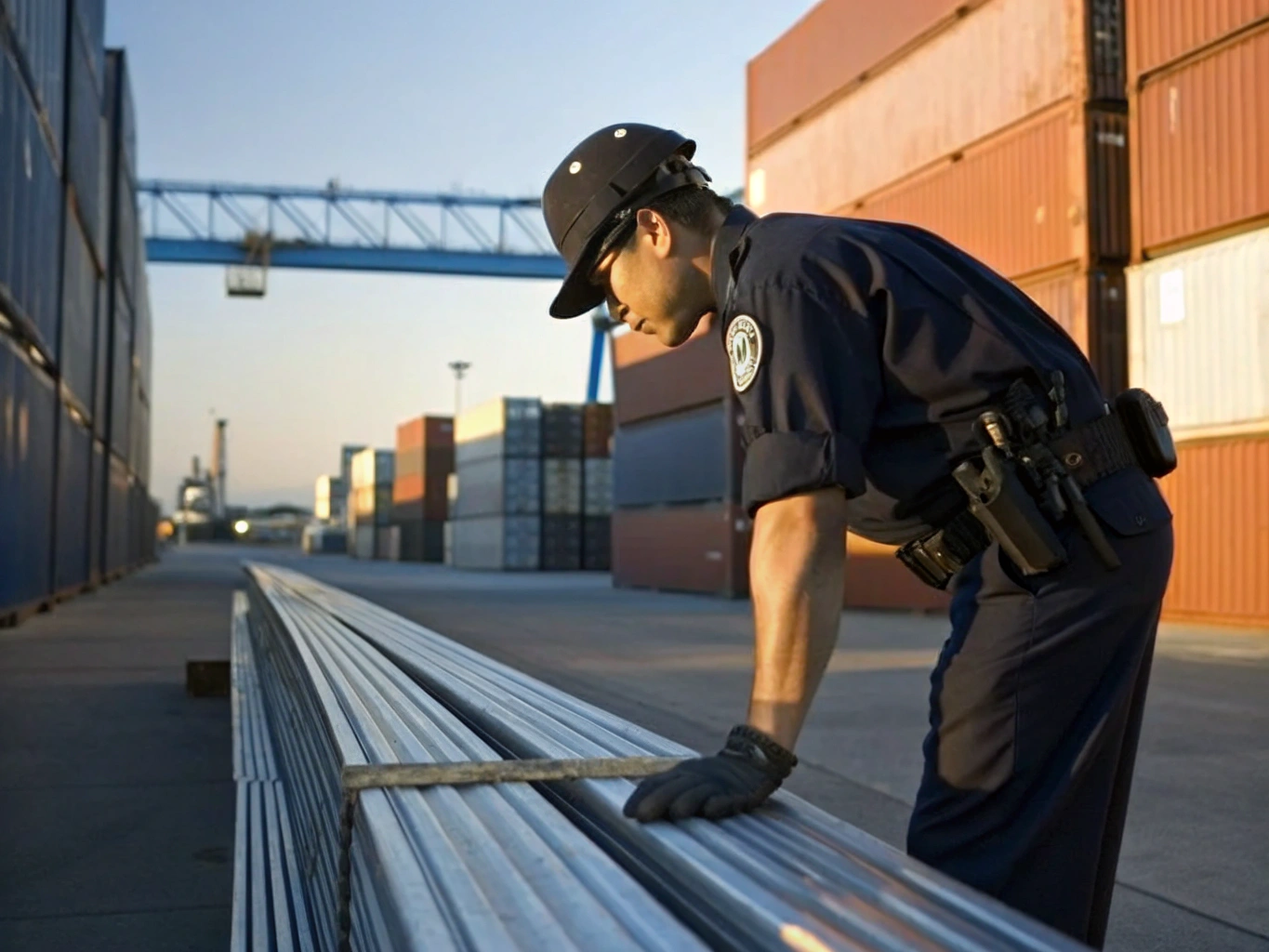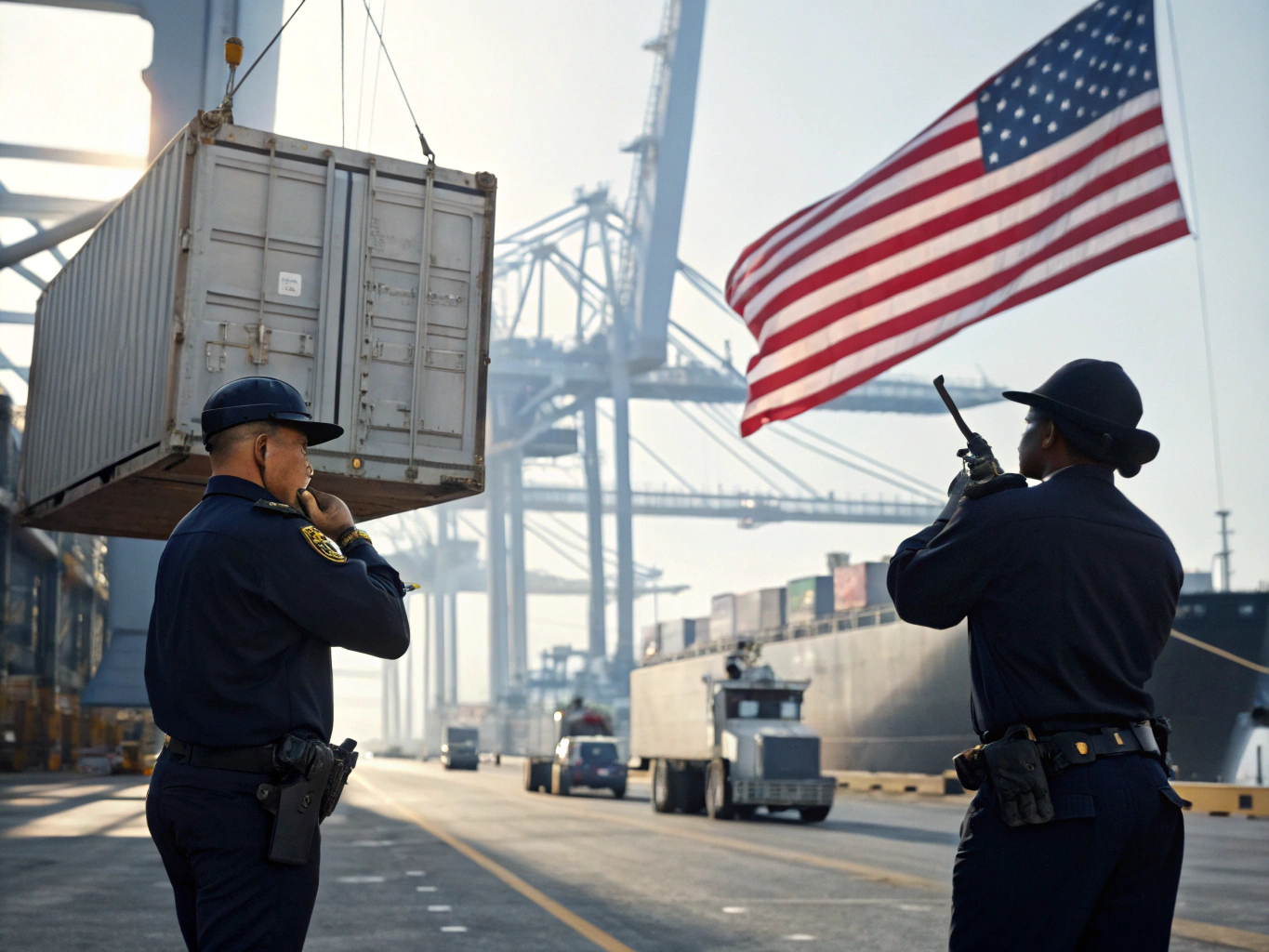
Trying to figure out which U.S. agencies are involved in regulating steel imports can feel like solving a puzzle with too many pieces. I’ve been through the maze myself and learned exactly where to look.
Steel part imports into the United States are regulated by several key agencies, including CBP, USITC, FDA (in specific cases), and BIS. Each agency plays a distinct role in compliance, trade enforcement, and national security.
These agencies work together to ensure that all steel imports meet U.S. legal and safety standards.
What Role Does CBP Play in Steel Imports?
As an importer, I always look to CBP first. They’re the gatekeepers at the ports and the first line of enforcement.
U.S. Customs and Border Protection (CBP) is responsible for enforcing import laws, collecting tariffs, verifying documents, and ensuring compliance with all applicable regulations for steel products.

CBP’s involvement covers a wide range of responsibilities:
CBP's Core Functions:
- Documentation Review: CBP verifies entry forms like CBP Form 7501, ensuring correct tariff codes and licensing.
- Duty Collection: They assess and collect applicable tariffs, including special tariffs like the 25% imposed under Section 232.
- Import Licensing: They check for a valid steel import license issued through the SIMA Licensing System.
- Security Compliance: CBP inspects goods for security concerns and illegal activities, like mislabeling or circumvention.
- Data Submission: Importers must use the Automated Commercial Environment (ACE) to submit steel mill certificates and supporting docs.
| CBP Function | Purpose |
|---|---|
| Enforce HTSUS codes | Ensure correct classification and tariff rate |
| Collect tariffs | Apply Section 232 and other import duties |
| Check import licenses | Verify SIMA license compliance |
| Conduct inspections | Prevent illegal or misdeclared entries |
Failing to meet CBP requirements can result in delays, fines, or seizure of goods. That’s why I always triple-check the CBP process.
How Does USITC Influence Import Policies on Steel Parts?
When I’m looking at broader trade policy issues, USITC is the agency I pay attention to. They shape the landscape for everyone involved in importing and exporting.
The U.S. International Trade Commission (USITC) investigates the effects of steel imports on U.S. industries and enforces trade remedies against unfair practices such as dumping and subsidization.

USITC is an independent, quasi-judicial federal agency. Here’s how they influence steel imports:
USITC's Impact Areas:
- Trade Investigations: If U.S. manufacturers believe they’re harmed by cheap imports, they can file complaints. The USITC investigates and may recommend penalties.
- Antidumping/Countervailing Duties (AD/CVD): USITC helps determine whether duties should be imposed to offset foreign government subsidies or unfair pricing.
- Economic Impact Studies: They evaluate how steel imports affect U.S. jobs, production, and investment.
- Policy Recommendations: USITC advises Congress and the President on trade laws and their implications.
| USITC Role | Description |
|---|---|
| Trade remedy decisions | Imposes duties after investigations on dumping/subsidies |
| Policy advisory | Provides reports to policymakers |
| Industry protection | Supports domestic industries from unfair trade |
For importers, staying informed about USITC rulings helps us anticipate changes in duties or import restrictions.
Does the FDA Regulate the Import of Steel Products?
Not all steel products need FDA attention. But in my experience, if the steel parts are used in sensitive sectors, FDA rules definitely apply.
The FDA only regulates steel imports if they are intended for use in food, drugs, cosmetics, or medical devices, as these can impact public health.

The FDA’s role is narrow but critical. Here’s when they step in:
FDA-Regulated Steel Uses:
- Medical Devices: Steel parts used in surgical tools, implants, or diagnostic equipment must meet FDA standards.
- Food Contact: Steel used in food processing machinery must meet safety guidelines for contaminants and material composition.
- Pharmaceutical Manufacturing: Equipment used to produce medications must be FDA compliant.
| Application Area | Regulation Authority | Notes |
|---|---|---|
| Surgical tools | FDA | Must meet 21 CFR Part 820 (QSR) |
| Food processing parts | FDA | Regulated under Food Contact Substances |
| Lab and pharma equipment | FDA | Subject to current Good Manufacturing Practice (cGMP) |
If your steel product falls under one of these categories, it’s essential to follow FDA import procedures, including premarket notification and facility registration.
What Other Agencies Are Involved in Steel Product Regulation?
Besides CBP, USITC, and FDA, there are a few more agencies importers should watch. These bodies focus on national security, commerce regulations, and environmental issues.
Other key agencies involved in steel product regulation include the Bureau of Industry and Security (BIS), the Environmental Protection Agency (EPA), and the Department of Commerce’s International Trade Administration (ITA).

BIS – Bureau of Industry and Security
- Oversees Section 232 investigations into whether steel imports threaten U.S. national security.
- Implements export control policies that may affect dual-use steel technologies.
EPA – Environmental Protection Agency
- Regulates steel parts or production processes that may involve hazardous materials.
- Ensures compliance with environmental standards for scrap steel and recycled materials.
ITA – International Trade Administration
- Promotes fair trade practices and administers import licensing through the SIMA system.
- Collects data on imports and exports to support economic policy decisions.
| Agency | Main Role in Steel Imports |
|---|---|
| BIS | National security and Section 232 enforcement |
| EPA | Environmental standards for steel manufacturing |
| ITA | Administers import licensing and trade monitoring |
Together, these agencies ensure a comprehensive regulatory framework that addresses economic, safety, and national interests.
Conclusion
Steel part imports into the U.S. are regulated by a network of agencies—CBP, USITC, FDA, BIS, EPA, and ITA—each handling a piece of the compliance puzzle. Importers must understand the role of each agency to navigate trade rules smoothly.


